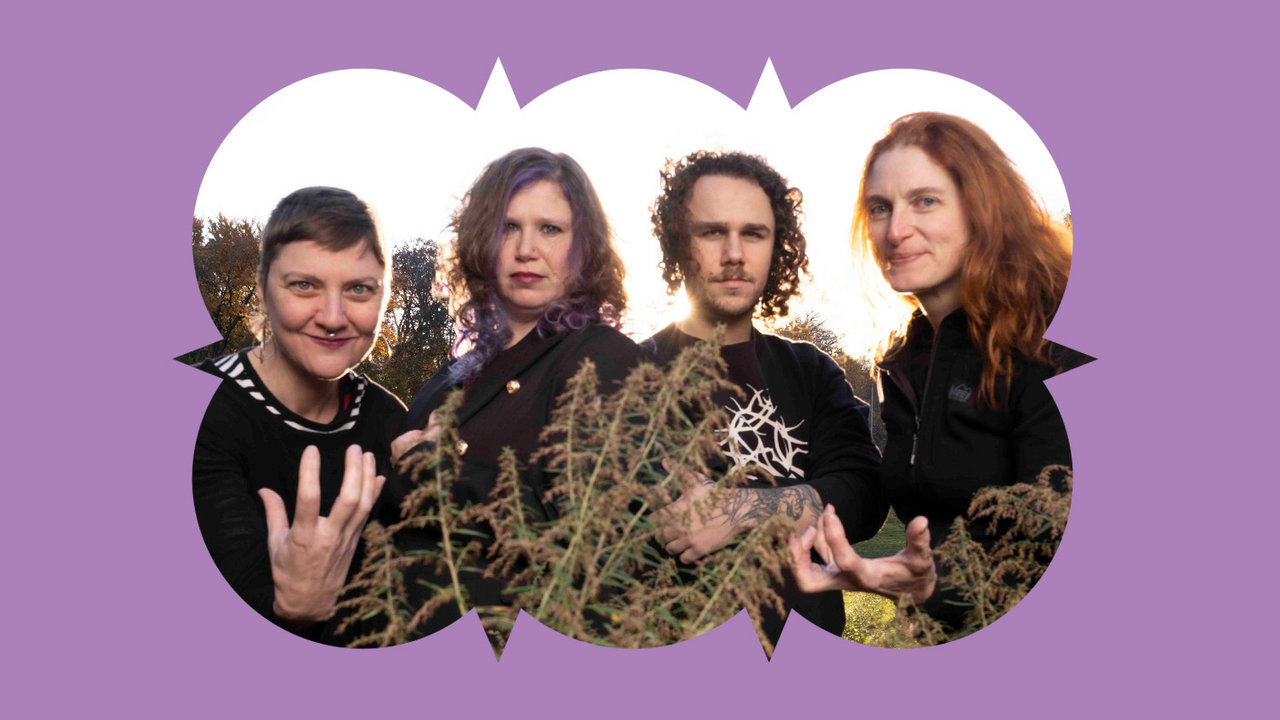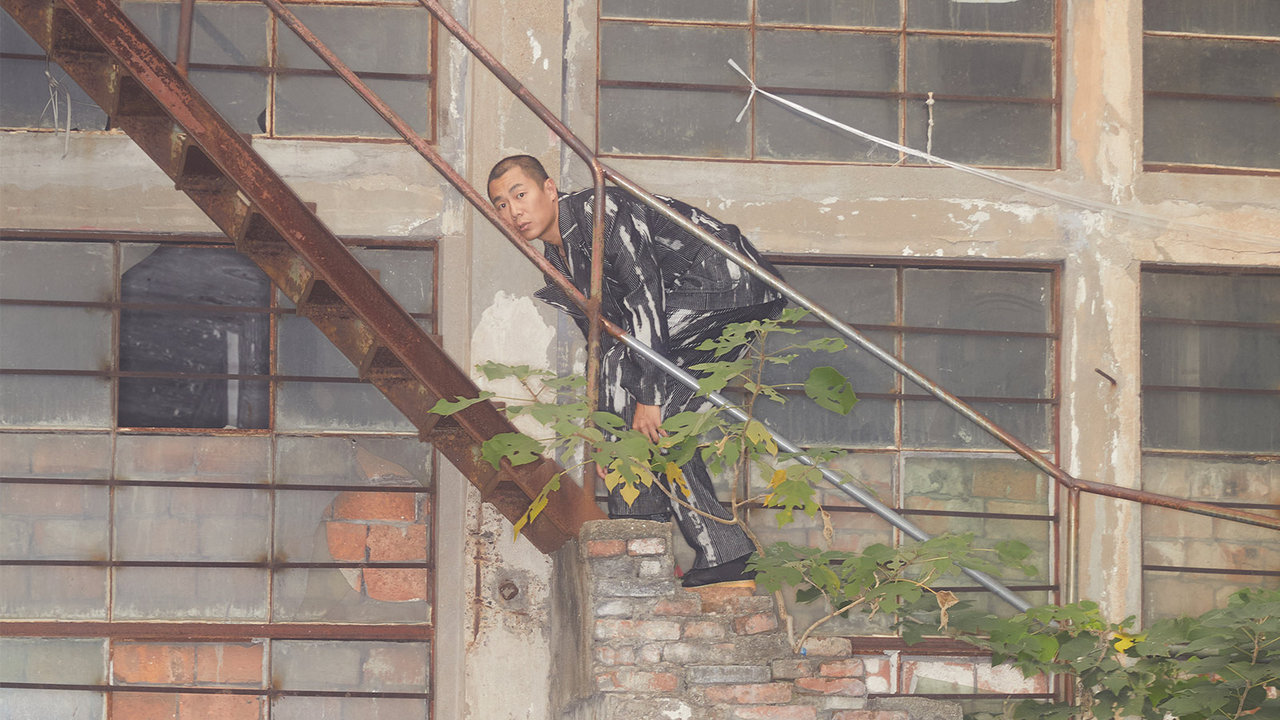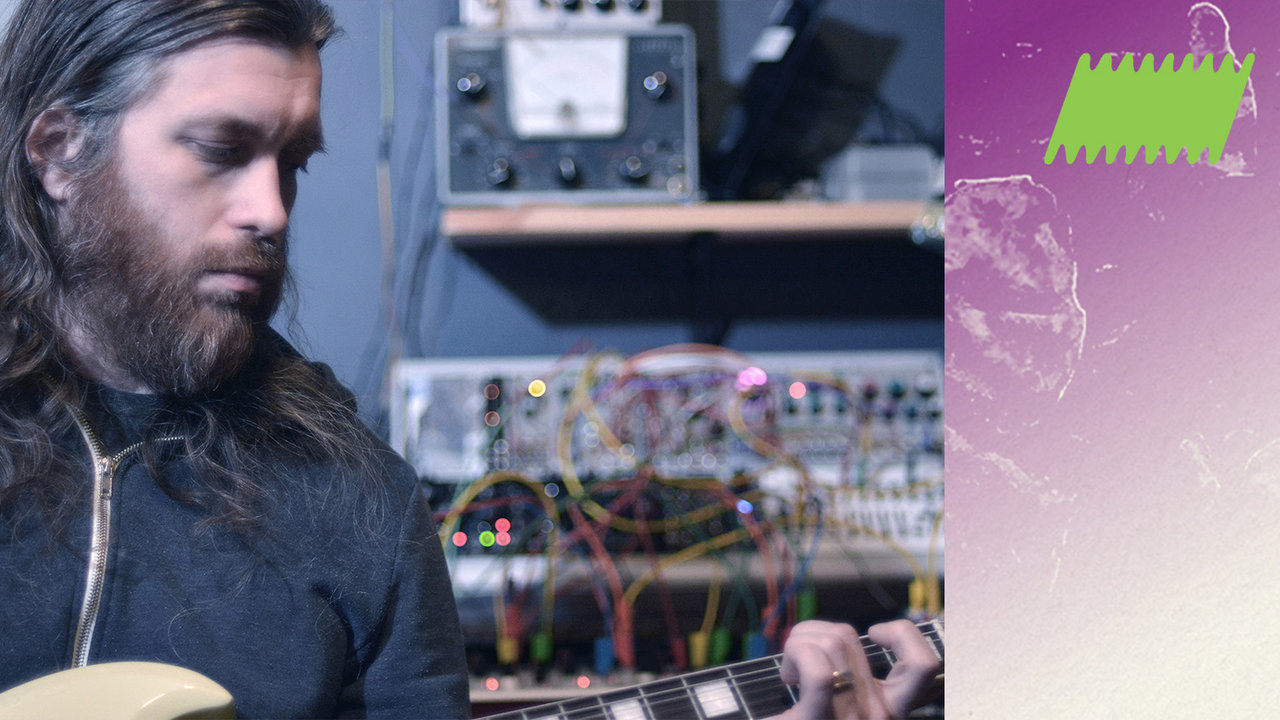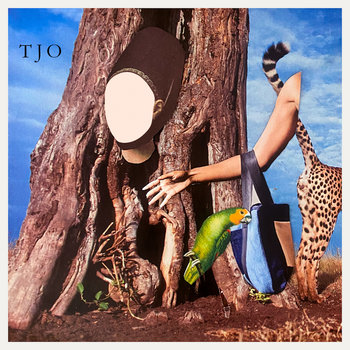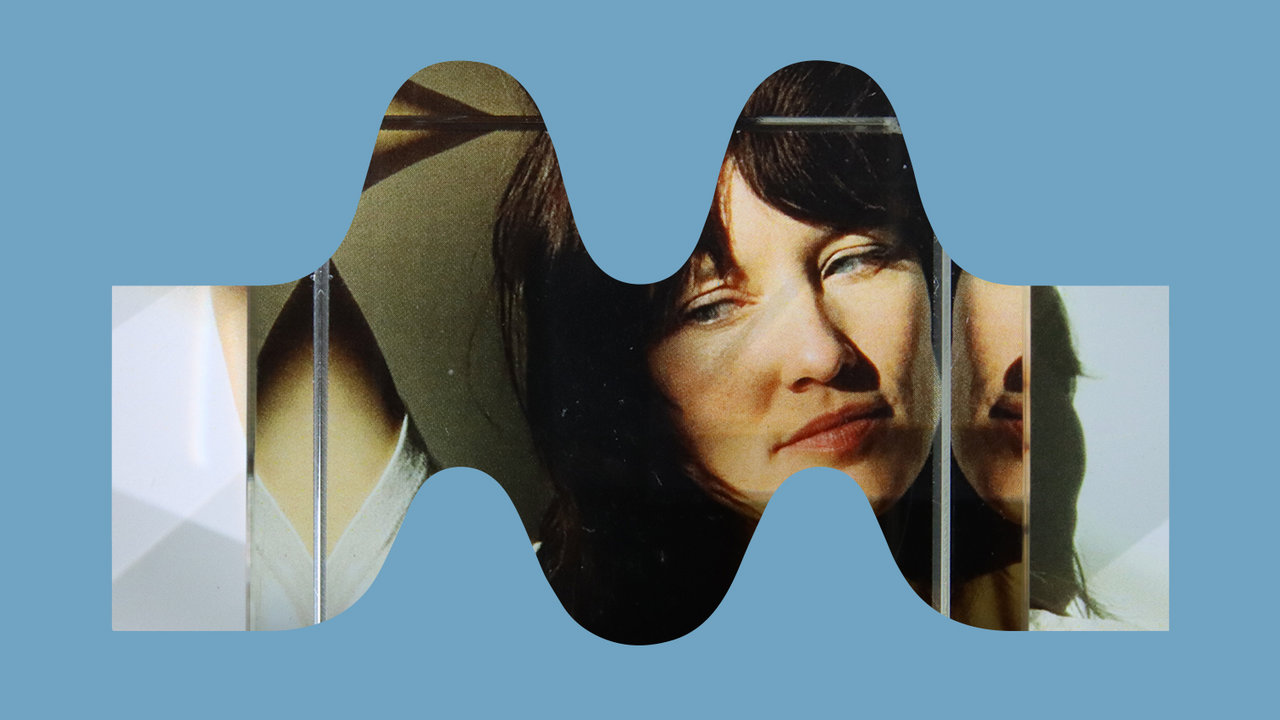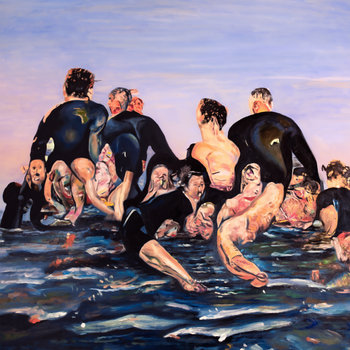
For Bill Orcutt, the guitar is a tool, not a totem. It’s not there to be worshiped; it’s there to be attacked—it’s there to be used. Often, though, the instrument fights back, with feedback, string rattle, and string buzz. A prolific composer, Orcutt’s unconventional take on blues, free jazz, and experimental music has featured on some 100 albums (yes, really) since the early 1990s. He is not your common or garden-variety guitarist.
Orcutt’s style of playing is often (though not exclusively) adversarial. His music is typically filled with the sounds of him wrestling with guitars. Indeed, that he usually plays with four strings rather than six suggests the other two have been lost in the melee. He’s not the first to experiment with a restricted setup—Ricky Wilson of the B-52s did the same, albeit removing the third and fourth rather than the second and third strings—but Orcutt has updated it, and redefined it. Orcutt estimates that of the 45 years he’s been playing guitar, 35 have been with the four-string format.
From his earliest recordings to his latest release, Four Guitars Live, Orcutt’s style hasn’t changed much, he’s just drawn deeper and deeper from the same well. Notice the never-ending push and pull between stark atonality and jagged melodicism in his music, the sheets of dissonance, the bellowing rasp, how texture is often as important as melody. Orcutt’s guitar playing is somehow vocal, even conversational, with the choppy rhythms resembling an argument, and the fragmented chords and melodies a muted heart-to-heart. To rescue an overused word from the jaws of cliché, Orcutt’s playing is genuinely, truly, angular.
Orcutt’s first notable musical project was Harry Pussy, the band he formed in Miami, Florida with wife Adris Hoyos. Their songs were short (anywhere from 15 seconds long onwards) and seem held together with fishing line and rust, all queasy discordance and rickety grooves. Although Harry Pussy were only active for around seven years, they managed to turn out seven volcanic albums, influence the next generation of noise rockers, and garner fans such as Sebadoh and Sonic Youth.
After Harry Pussy, Orcutt took a decade-long hiatus before returning in 2009 with A New Way to Pay Old Debts. The atonality of Harry Pussy was still present, but it was concentrated. Rather than being wedged in between Hoyos’s manic vocal and drum performance, there was a greater focus on the twisted metallic structures hewed out of the instrument Orcutt was desperately trying (or rather, not trying) to tame. Since 2009, he has released music at a fair old clip, from the oddly hypnotic How the Thing Sings to the slow burn of Odds Against Tomorrow, the genuinely bonkers A MECHANICAL JOEY, and beyond.
Music isn’t the only thing he makes. In 2016 Orcutt created Cracked, a “primitive and stripped-down” open-source audio program, which allows users to modify sound and tinker with frequencies without being restricted by a user interface. Orcutt told The Wire that he wanted “something that feels like a software equivalent to one of the cheap Silvertone or Kay guitars I use.” Aside from guitar music, Orcutt does a roaring trade in bizarre electronic albums made on Cracked.
Orcutt’s oeuvre is unpredictable and unique. He might take a little from Muddy Waters (who first inspired him to pick up a guitar), as well as perhaps Zoot Horn Rollo, but is nonetheless thrillingly original. His vast catalog, innovative adaptation of the guitar, and self-made music software demonstrate a truly restless creative spirit.
Why Four Strings?
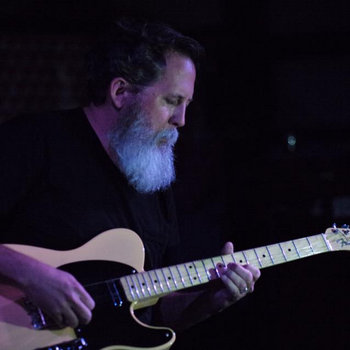

Why Four Strings? serves as a good introduction to the world of Bill Orcutt. Comprising “various short-run, out of print 7″s, tapes & LPs released by Palilalia Records 2009 — 2017,” this compilation encompasses Orcutt and Corsano collaborations; home and studio recordings; as well as some scintillating Harry Pussy live numbers. Among the highlights is the lo-fi sprawl of “My Friends When I’m Not There” (recorded “in Weston FL in a staircase at the elementary school where my sister worked”) and the moaning distortion in “Bring Me My Shotgun.” The sounds on Why Four Strings? should answer that question once and for all.
Bill Orcutt
Released in 2017, Orcutt’s self-titled album features impressionistic takes on classics like “White Christmas” and standards such as “Ol’ Man River.” It’s wonderful to hear shards of prettiness force their way into that classic Orcutt cut ‘n’ thrust. “When You Wish Upon a Star” bears almost no resemblance to its original, but there’s occasionally the merest hint of the familiar tune. Likewise, the original melody to “Over The Rainbow” is complicated by jazz chords and harmonies. It’s a masterful deconstruction of the American songbook.
Brace Up! (with Chris Corsano)


Vinyl LP


Orcutt is renowned for his collaborations; he has made music with Circuit des Yeux and guitarist Tashi Dorji, and released a wild take on Delta blues with drummer Jacob Felix Heule called Colonial Donuts. Arguably his most fruitful and longstanding partnership, though, is with drummer Chris Corsano. Although Orcutt and Chris Corsano had collaborated live many times before, Brace Up! is their first bona fide studio album. Recorded and released in 2018, the album is a mixture of bristling slow cuts and short, sharp bangers. The high water mark of Brace Up! is “She Punched a Hole in the Moon For Me,” where Orcutt’s fitful playing goes toe to toe with Corsano’s bristling drum parts, the droning low notes acting as a lovely counterpoint to the hustle and bustle overhead.
Recorded in Miami 1989–1991 (with Watt)
Before Harry Pussy, Orcutt had already formed and dissolved a short-lived guitar and drum duo with Tim Koffley called Watt; Recorded in Miami 1989–1991 compiles tunes from their two-year lifespan. “Sad King Ott” (recorded on Orcutt’s Walkman) showcases serrated, dissonant grooves but still achieves a delicious sense of melancholy. The post-rock simmer of “The Young and the Decoding” comes in waves, with Orcutt’s restless guitar and Koffley’s rumbling drums never sitting still for a moment. Although Watt ended when Koffley “yearned for rhythmic grids of increasing complexity,” Recorded in Miami 1989-1991 exhibits Orcutt’s distinctive style in embryo.
Live at Cafe OTO (with Okkyung Lee)


This unearthly album is an artifact that documents the first meeting between Bill Orcutt and South Korean cellist Okkyung Lee. Filled with eerie empty spaces and eldritch noises, the pieces here (each named “Untitled”) resound with a real physicality, courtesy of the cello and guitar creaks, room ambience, and squealing harmonics. Much of this album is discordant and jagged, but moments of prettiness surface briefly, like sun dappling shadow. Just wonderful.
Music For Four Guitars


In April 2023, a Tiny Desk performance by the Bill Orcutt Guitar Quartet went viral (or at least as viral as a four-string guitar quartet can go)—the video is currently on 112k listens and counting. Rather than the improvisation that usually features in Orcutt’s collaborations, instead the players followed a tightly-regimented score in the manner of Steve Reich’s Music for 18 Musicians. Highlights include “Or from behind,” which has a kind of triumphant loveliness, and the propulsive churn of “Glimpsed while driving.” The genius of Music For Four Guitars is in the levels of concentration you can apply to it. These pieces allow you to focus on the metallic rasps of one guitar, then hone in on the melodic interplay of two guitars, or simply enjoy it all as one thrumming whole.
Odds Against Tomorrow
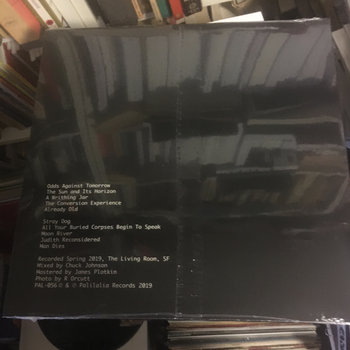

Vinyl LP


Odds Against Tomorrow evades categorization. “The Conversion Experience” is searingly Orcuttian, with ample, ragged dancing around the fretboard, while “A Writhing Jar” and “Already Old” are reminiscent of Glenn Branca, albeit more subdued (they’re also multi-tracked, a rarity in Orcutt’s solo guitar discography). Odds Against Tomorrow also features a beautifully ornate cover of “Moon River” (currently Orcutt’s most-played song on Spotify). Another highlight is the title track, which encompasses the loop-based music Orcutt makes on Cracked, his prettier acoustic material, and that slash-and-burn approach to electric.
Jump On It


Vinyl LP


Although Orcutt often seems to be wrestling with his guitars, on 2023’s Jump On It we hear something softer and a little sweeter. There’s still the occasional snap of a string or jarring interval, but it’s nice to hear Orcutt’s undeniable knack of melody coming through, this time on acoustic guitar rather than electric. The lovely thing about the music recorded in Orcutt’s living room is its immediacy. You can hear Orcutt breathing through his nose and sense the ambient room noise, as if you’re sitting right next to him as he runs through this elegant song cycle.
The Anxiety of Symmetry
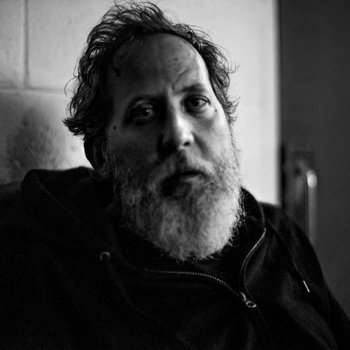



Vinyl LP


One of the stranger albums in Orcutt’s already strange discography, The Anxiety of Symmetry, was made on Orcutt’s self-built music software, Cracked, and comprises samples of female voices counting between one and six. Fans of Philip Glass or The Books might find something to enjoy here. The Anxiety of Symmetry is psychedelic and weird, with the ever-shifting, ever-overlapping loops becoming headier and headier as they progress towards ever more labyrinthine polyphony. Pigeon-hole Bill Orcutt at your peril.
Four Guitars Live



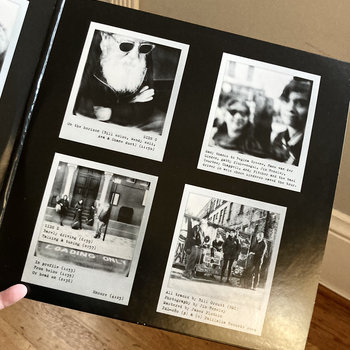

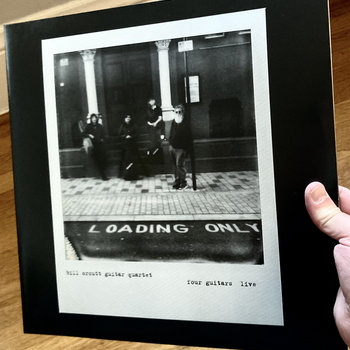
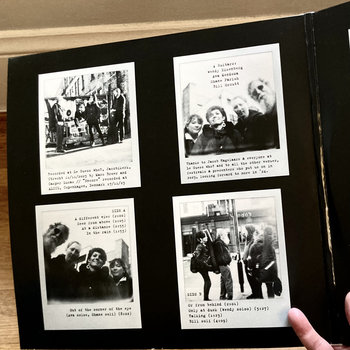

2 x Vinyl LP




Pitched somewhere between The Velvet Underground and a junkyard Steve Reich, Four Guitars Live is a noisy and stirring thing. The meticulous “Or from behind” morphs into something faster and heavier, with each guitar trying to find its place in the soupy groove. Almost all of the songs are taken from the studio album, apart from Orcutt’s chiming “Solo” performance and “Encore,” which moves from distorted growls and grumbles into yowling cacophony before eventually subduing. Mostly recorded at Le Guess Who? in Utrecht, The Netherlands, Four Guitars Live suggests that the original album is really meant to be heard live: the guitars roar louder, you hear the joins, the little inconsistencies, the angularity. In short, it somehow sounds even more Orcutt.

